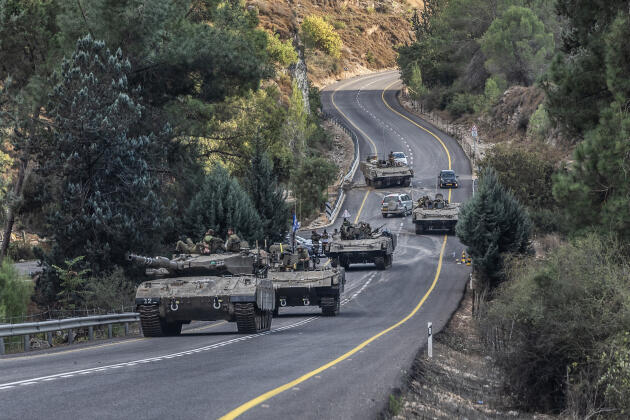Iran is arming West Bank terrorists
First published in Times of Israel
Prime Minister Benjamin Netanyahu, speaking at the weekly Israeli cabinet meeting on December 28, said Iran was increasing its efforts to arm the Palestinians in the West Bank, a move, he emphasized, was encouraged by the Palestinian Authority envoy to Tehran.
PM’s indignation was mainly veered towards the UN moves forward with a unilateral Palestinian resolution in the Security Council rather in proposing an Israeli strategy vis-à-vis the Iranian aggression against Israeli security.
Actually, Iranian Supreme leader Ayatollah Ali Khamenei first publicized his instruction to arm the Palestinians in the West Bank by the end of the “Protective Edge” Operation in Gaza in a speech on Jerusalem Day on July 23, 2014.
As I signaled in my Times of Israel article “Iran and Hezbollah Bandwagon Hamas’ Fight” on July 30, Khamenei understood towards the end of the Israeli operation that it will be more difficult to rearm the isolated Hamas while Egypt strangles the Strip and behaves towards Hamas as a strategic enemy, the ally of the Egyptian Muslim Brotherhood.
Khamenei decided then to cast his lot with the Palestinians in the West Bank hoping that smuggling of non-sophisticated short-range rockets will threaten the Israeli heartland and help the emergence of a third intifada. His speech was followed by a string of similar and more practical proposals by IRGC and Basij officials and Iranian parliamentarians.
One of the direct consequences of the Protective Edge Operation, in which Hamas resisted a 50 days onslaught by the IDF without a clear strategic outcome, has been the growing violent and terrorist campaign in the West Bank and Jerusalem against Israeli civilian targets.
Palestinians in the West Bank were emboldened by Hamas’ performance and the Israeli indecisiveness to take advantage of the optimal regional and international conditions to break Hamas’ military backbone and permit the Palestinian Authority to gradually retake control of the Gaza Strip with Egyptian support.
Moreover, in spite of PM Netanyahu’s promise for a new “political horizon” at the end of the operation, the Israeli government took steps to build new settlements and neglect any effort to return to negotiations with the PA.
On this background the PA decided to challenge Israel not only through aggressive diplomatic moves at the UN and on the international arena but also by an enhanced incitement campaign on the ground. This permits it also to counter Hamas’ attempts to challenge its legitimacy among the Palestinian public.
In spite of the official Israeli claims that most of the violence and attacks are individual initiatives and not organizational operations, it is clear that the vicious Hamas incitement on official and social media, as well as the PA and the Islamic Movement in Israel’s incitement have an important role in the present escalation of violence.
Somehow, many of the Palestinians implicated in primitive stabbings or vehicular terror attacks were relatives of Hamas militants and the organization’s flags are proudly brandished at the burial ceremonies.
Just these days a video attributed to Hamas, titled “How to stab correctly,” explaining the most lethal ways to stab somebody and giving tips how to flee scene of attack, was circulated on YouTube.
The Tehran regime sees the situation as a golden opportunity to advance Khamenei’s strategy of arming and radicalizing the Palestinians.
Ayatollah Khamenei reaffirmed on November 25 Iran’s support for the arming of the Palestinians in the West Bank, just like the Gazans. Khamenei promised to provide Hamas and Islamic Jihad in Palestine with the same assistance offered to Hezbollah in Lebanon.
The Islamic Revolution Guards Corps (IRGC)’s second-in-command, Brigadier General Hossein Salami declared by the end of November that “the sons of the West Bank and Gaza Strip will join hands” and transform the West Bank into a “hell” for the Zionist regime.
At the beginning of December a Hamas delegation visited Iran. Deputy Hamas chief Moussa Abu Marzouk said that after Iran and Hamas decided to mend ties after rift over Syria and support of Assad he believes bilateral relations with the Islamic Republic of Iran “are back on track.”
In a recent interview with the Palestinian Information Center, top Hamas official, Ezzat Al-Resheq commenting on the Hamas visit to Tehran “and the many thanks Al-Qassam Brigades sent from Gaza to Iran,” emphasized that Hamas seeks good relations with the Islamic Republic of Iran “regardless of the latest lack of mutual work that resulted from some regional crises; we managed to overcome this misunderstanding and to prioritize the mutual concern against the Israeli Zionist project.”
Israel should be worried by the cooperation and coordination between Iran and Hamas and take in consideration the possibility that the arming of West Bank militants with short range rockets and attacks on Israel’s heartland will be one of their priorities.






